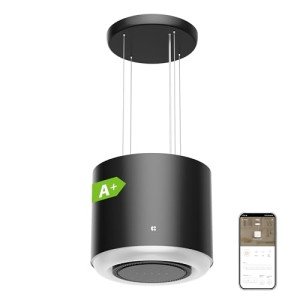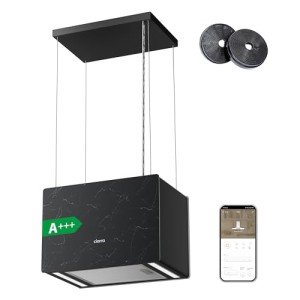
20
May20 Trailblazers Setting The Standard In Island Extractors
Island Extractors: A Comprehensive Guide to a Unique Industry
In the world of extraction markets, few sectors capture the imagination as clearly as that of island cooker hoods uk extractors. These specialized entities focus on the extraction of valuable resources, both eco-friendly and non-renewable, from kitchen island hoods ecosystems. This article explores the multifaceted world of island extractors, discussing their operations, environmental impacts, and the future of this specific niche industry.
Comprehending Island Extraction
Island extractors are business or people that take part in the extraction of natural resources found on islands. This extraction can consist of a range of materials, such as minerals, nonrenewable fuel sources, and even marine resources. Offered the unique communities found on islands, the extraction procedure can provide both chances and inherent difficulties.
Classifications of Island Extraction
Island extraction can usually be categorized into several categories:
| Category | Description | Examples |
|---|---|---|
| Mineral Extraction | The removal of minerals from the earth | Kaolin, Bauxite, Iron Ore |
| Nonrenewable Fuel Source Extraction | Extraction of fuels formed from organic matter over centuries | Oil, Natural Gas |
| Marine Resource Extraction | Harvesting resources from oceanic environments | Fish, Seaweed, Shellfish |
| Sustainable Resource Extraction | Extraction of sustainable resources | Lumber, Freshwater |
The Process of Island Extraction
The extraction procedure itself can vary substantially based on the resource in concern. The treatments for drawing out oil diametrically vary from those for harvesting seafood.
Actions in the Extraction Process
- Expedition: This stage includes geological studies and initial studies to assess the capacity of the resource.
- Laws Compliance: Compliance with local and international environmental laws is crucial to ensure sustainable practices.
- Extraction: This consists of drilling for oil or mining for minerals, and can trigger considerable disturbance to local environments if not managed correctly.
- Transportation: Extracted resources normally need transportation back to the mainland or other markets, frequently including making use of ships and barges.
- Post-Extraction Restoration: Efforts to restore the environment post-extraction are vital to mitigate lasting impacts.
Environmental Impact of Island Extraction
Given the fragile nature of island ecosystems, the environmental effect of extraction activities can be significant.
Key Environmental Concerns
- Environment Destruction: The physical removal of landscapes can ravage regional flora and animals.
- Contamination: Resource extraction can present toxins, leading to ocean acidification, water contamination, and air quality deterioration.
- Coastal Erosion: Activities can intensify coastal disintegration, modifying the natural landscape and impacting regional neighborhoods.
- Biodiversity Loss: Extractors often interrupt regional ecosystems, placing native types at threat.
Mitigation Measures
To counteract these effects, Island Range hood with lights extractors are progressively embracing sustainable practices that include:
- Implementing more stringent environmental guidelines
- Utilizing innovation for much safer extraction processes
- Conducting thorough environmental impact evaluations (EIA)
- Engaging with regional neighborhoods throughout preparation and operation stages
The Future of Island Extraction
As international need continues to increase for natural resources, the future of island extractors appears appealing yet intricate. Several elements will shape the trajectory of this industry in coming years:
- Technological Advancements: Innovations in extraction technology may lead to more efficient and less ecologically disruptive techniques.
- Regulatory Changes: As environment change ends up being an ever-pressing issue, stricter guidelines may redefine extraction practices, focusing on sustainability.
- Pressure from Environmental Groups: Increased advocacy for the defense of biodiversity and island range hood With lights environments can influence functional procedures.
- Shift towards Renewable Resources: A growing focus on renewable resource options might alter the focus from non-renewable extraction to sustainable practices.
Regularly Asked Questions
What resources are frequently drawn out from islands?
Typical resources drawn out from islands include minerals, nonrenewable fuel sources, timber, freshwater, and marine resources such as fish and seaweed.
How do island extractors guarantee sustainability?
Island extractors can guarantee sustainability by adhering to environmental guidelines, including technology that minimizes effect, and bring back environments post-extraction.
What are the major obstacles faced by island extractors?
Difficulties include compliance with policies, managing ecological effects, logistical concerns associated with transportation, and engaging with local communities affected by extraction.

Exist any noteworthy island extraction tasks?
Yes, various tasks exist internationally, consisting of mineral mining in the Caribbean, oil drilling in the North Sea, and sustainable fish farming initiatives in Southeast Asia.
The world of island extractors is an intricate interaction in between economic chance and ecological duty. As this industry evolves, the challenge will be to balance resource extraction with the need to secure delicate island communities. By welcoming sustainable practices and engaging with regional communities, kitchen island cooker hood extractors can create a course that appreciates both nature and industry, ensuring that these special environments are maintained for generations to come.



Reviews